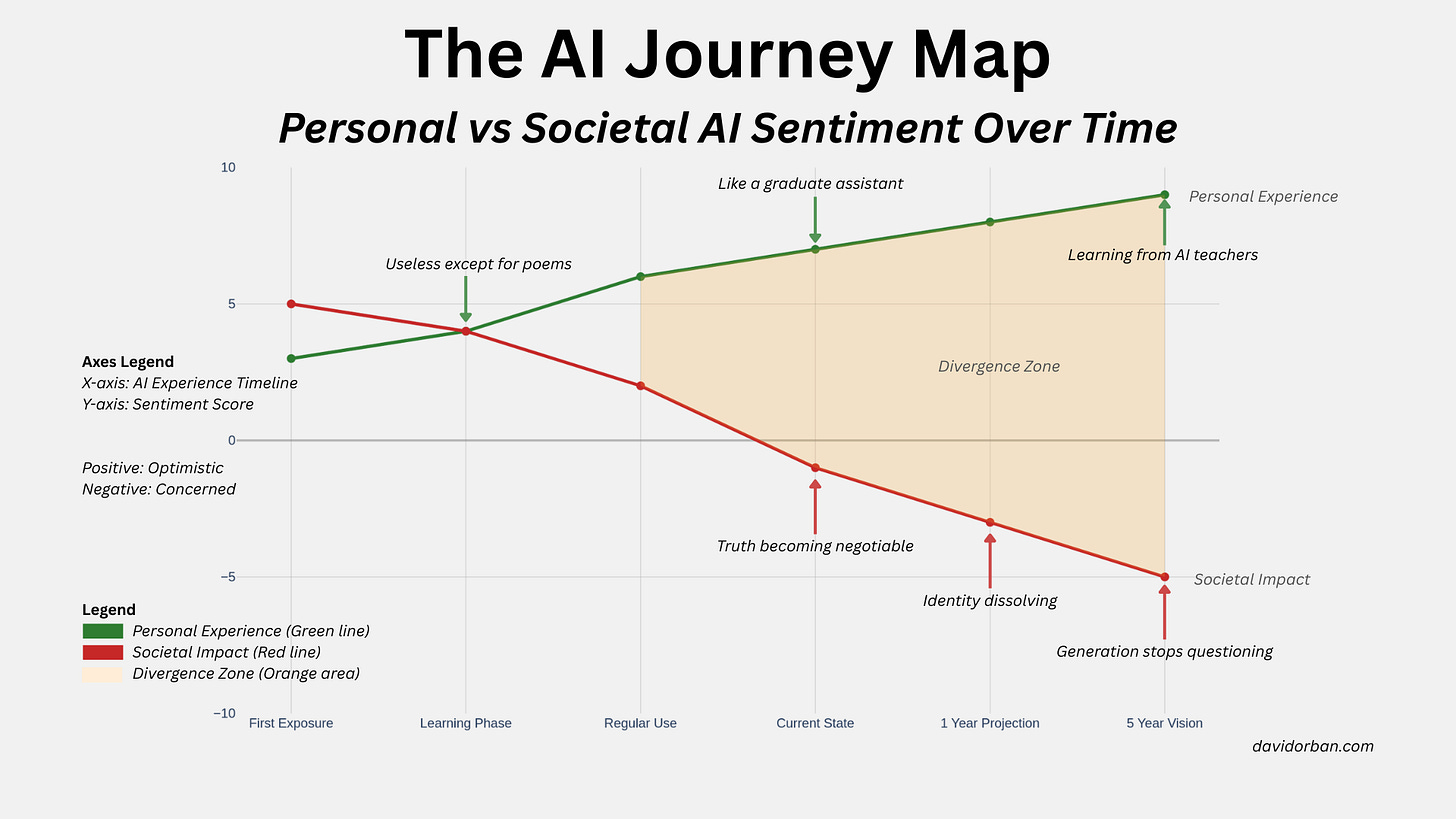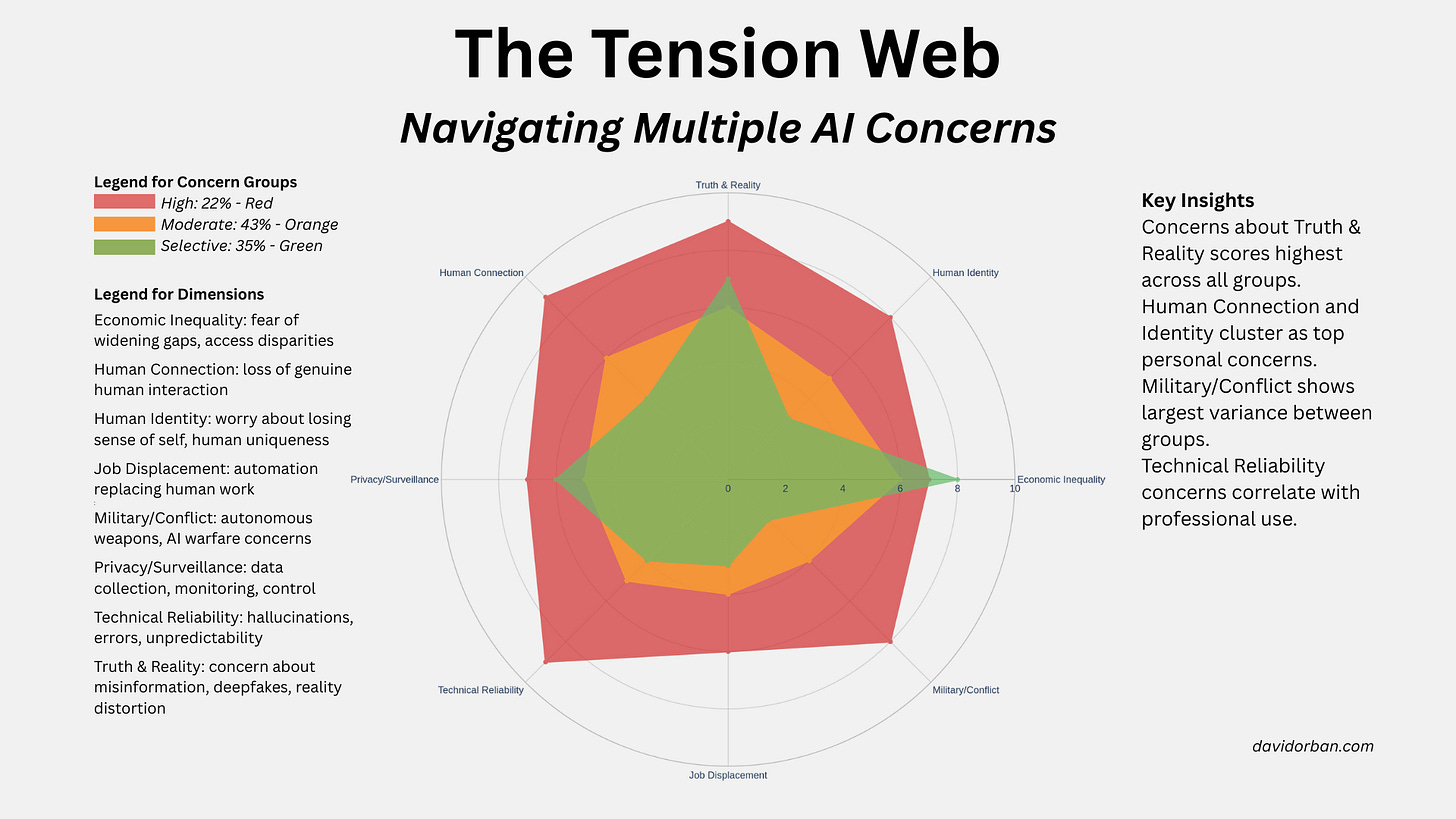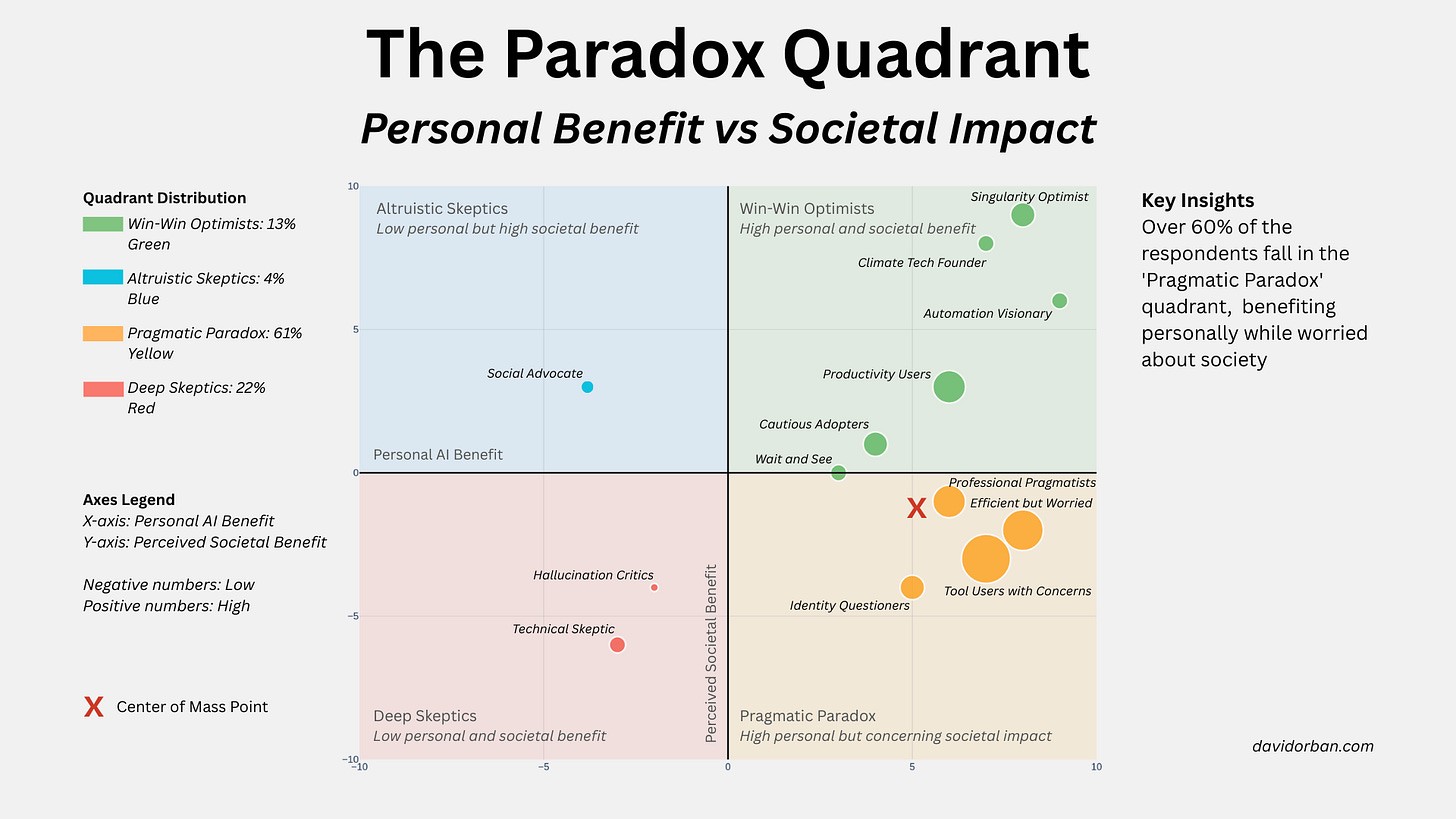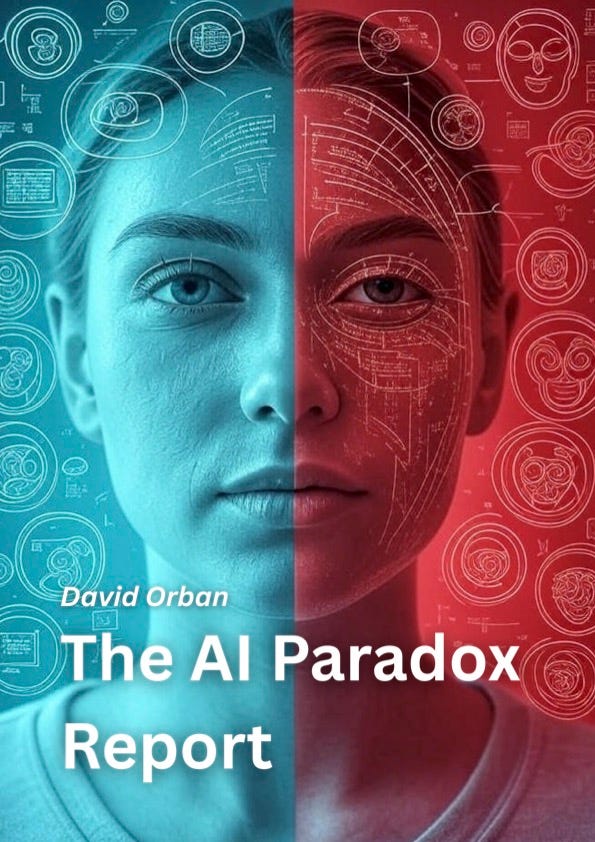The AI Paradox
Early Adopters Love AI But Fear Its Future
Artificial intelligence is changing how we work, think, and interact. But beneath the excitement, a paradox is emerging. Early adopters, the people who use AI the most, say they personally benefit from it, yet they worry about its consequences for society. This tension is what I call the AI Paradox.
The following presents the results of a survey I conducted in July 2025 among early AI adopters. The questions, anonymized responses, code, and chart data are available at aiparadox.davidorban.com.
When we look at personal experiences with AI over time, the trend is overwhelmingly positive. People describe AI as moving from being a toy (“useless except for poems”), to becoming as capable as a graduate assistant, and in the near future, even as a teacher.
But when we look at societal perceptions, the curve slopes downward. Respondents are increasingly concerned about truth becoming negotiable, identity dissolving into digital proxies, and even the possibility of future generations no longer questioning information.
Together these create what I call the Divergence Zone: the widening gap between personal optimism and societal concern.
Next, we mapped concerns across eight dimensions: inequality, human connection, identity, jobs, military use, privacy, reliability, and truth.
What stood out most was that truth and reality distortion scored the highest across all groups. People are less worried about job loss than they are about misinformation, deepfakes, and the erosion of trust.
Identity and human connection also ranked high, reflecting fears that proxies and AI avatars could reshape what it means to be human. Other concerns varied more. For example, military conflict with AI divides opinion: some see it as remote, others as existential.
The Tension Web shows how wide-ranging these anxieties are, but also how strongly they cluster around truth and identity.
When we plot responses on two axes, personal benefit and societal benefit, the picture becomes clear.
A small minority of win–win optimists believe AI is good for both themselves and for society. Another small group of deep skeptics distrust it entirely. But the overwhelming majority, more than sixty percent, fall into what I call the quadrant of the Pragmatic Paradox: they find AI immensely useful in their own lives, while doubting its broader social impact.
This center of gravity defines our current moment: adoption is widespread, but confidence in AI’s societal trajectory is fragile.
The AI Paradox shows us that adoption and trust are diverging. People benefit individually, but worry collectively.
This is not a contradiction but a natural dynamic of technology: personal empowerment paired with societal risk. The challenge now is to incorporate this understanding in governance, transparency, and culture. Only by addressing these can we close the gap between optimism and concern.
You can read the full AI Paradox Report and explore the data at aiparadox.davidorban.com.





